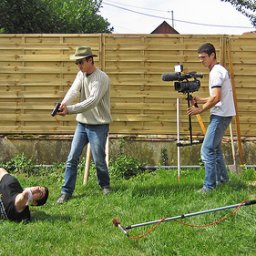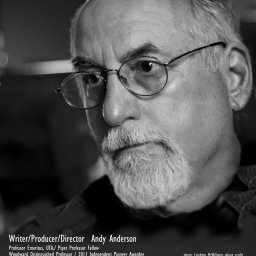 If movie and television portrayals are to be believed, a film director’s job consists of telling actors where to stand, demanding more emotion in dialog, and yelling, “Cut!” repeatedly. You no doubt realize that there is quite a bit more to directing than this, but what exactly is a director responsible for? The answer: a lot
If movie and television portrayals are to be believed, a film director’s job consists of telling actors where to stand, demanding more emotion in dialog, and yelling, “Cut!” repeatedly. You no doubt realize that there is quite a bit more to directing than this, but what exactly is a director responsible for? The answer: a lot
In essence, directors are responsible for overseeing the majority of the creative aspects of the film throughout the entirety of the production. The director is often consulted during the hiring process, and in some cases may even be directly involved. They are also responsible for planning the shots, scheduling production, working with set designers, and creating the overall tone of the film.
Once production begins, the director takes a managing role. They are in charge of guiding the cast and crew, fine-tuning performances, perfecting lighting and camera set ups, and constantly evaluating the progress of the film production through a critical eye.
Often, a director continues to be heavily involved into post-production. They may assist in editing, consult on or even contribute to musical score, and review various stages of completion.
Learning the Craft
As you can likely tell, a director wears a number of hats during their time as part of a film production. This requires a director to be well versed in many aspects of motion picture production, and have a broad range of experience and education.
To prepare yourself for a career as a director, it’s helpful to be familiar with the techniques and styles of various accomplished directors. Watch as many films as you can while focusing your attention on the subtle nuances of the movie’s production: the lighting, the camera angles, the nuanced movements and dialog choices. Try to interpret the intent behind the choices, and begin gathering ideas.
Also, an education in motion picture production can give you an excellent advantage. Through a film production school, you spend time getting hands-on practice and feedback from industry experts. Getting professional instruction on not only directing specifically, but also on the entire field of film production, can help you be better prepared to take the reins of a film as a director.
Of course, experience is essential. A film production school will help you gain great experience, but padding that with your own experiments and projects can add to your knowledge base. Don’t be afraid to fail in your early attempts; grab some friends, a camera and a vision and see what happens.
Still Have More Questions?
KD Conservatory has acting, musical theatre, and film production programs to help prepare students for careers in the entertainment industry. Contact us with any of your questions, or check us out on Facebook for ongoing updates and information!










